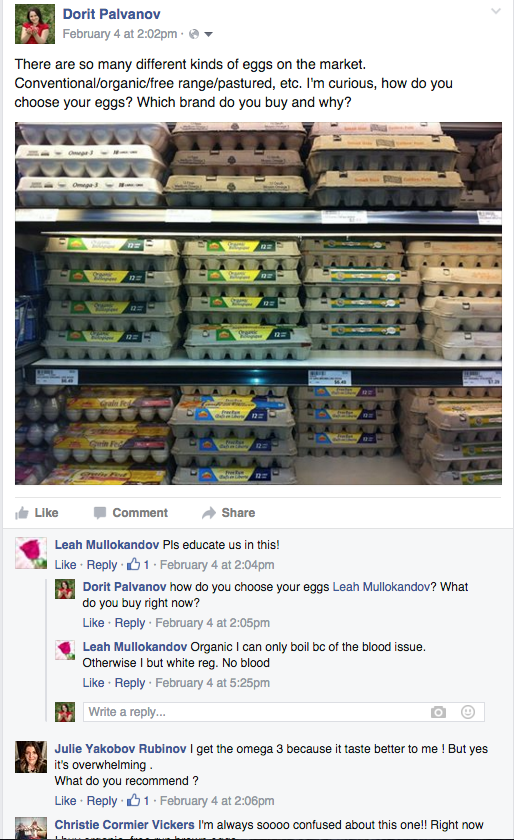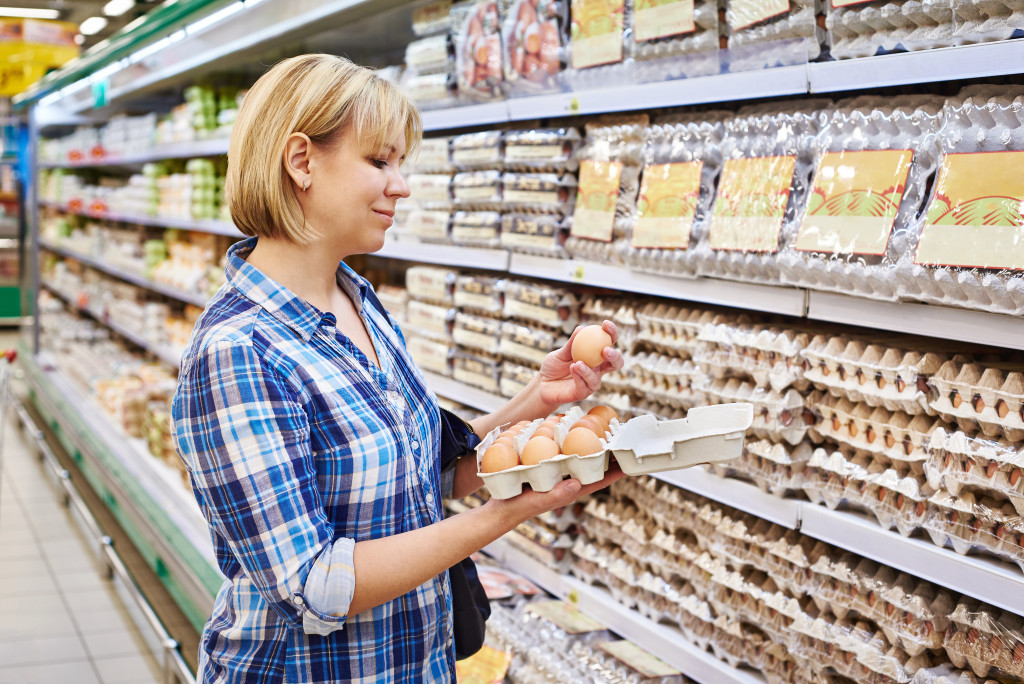Hi mom,
Today’s article is all about healthy eggs. Why does it even matter to get supreme quality eggs for your family, what do the various marketing claims on egg cartons mean and where to buy good quality eggs?
When posting this as a question on my FB page I got a lot of questions and comments from mamas. So it’s time to have a serious talk about this staple food which finds its way into our shopping carts each week. You know that I am extremely passionate about educating parents about what they are feeding their children, and eggs is one topic which has been on my mind forever to blog about. So here we go!

Are you avoiding eggs?
Lately, I see a lot of moms fearing eggs for various reasons. Some families avoid eggs because “eggs have cholesterol”, other families due to “ethical reasons as chickens are raised in non humane ways” adding hormones and antibiotics in their feed to promote chickens to lay more eggs. In houses where eggs are consumed, I see more and more parents feeding their kids egg white only, by systematically removing the egg yolk because “it’s not good for you”. So let’s try to make some order in this crazy marketing-gimmicky world we live in today!
Why are eggs good for you (and the kids too)?
Here are five egg-cellent facts:
1) Egg whites are a source of perfect protein and egg yolks contain a powerhouse of nutrients, one of them is choline, which is critical for the development of the brains of our children. This is an extremely important nutrient for a pregnant woman, your baby will reap the benefits for the rest of his/her life!
2) Egg yolks are also a wonderful source of cholesterol. Yes you heard me right wonderful cholesterol! It is especially great for when you are preparing your body for pregnancy. All sex hormones are made from cholesterol as are the hormones the body makes to deal with stress. Do not limit good cholesterol intake during this time!
3) Egg yolks provide vitamins A, K and E as well as folate, biotin and important minerals like iron, zinc and selenium.
4) Eggs help keep your appetite in check. When you eat eggs the brain turns on the areas that are responsible for the feeling of satiety, leading to lower calorie consumption.
5) Egg yolks have vitamin D: Consuming enough vitamin D during pregnancy could decrease a child’s chances of developing multiple sclerosis as an adult.
An egg is, in fact, a potential chicken. It is a very powerful food, and this is a good thing! Having said that, I wouldn’t just scramble five or six eggs mindlessly just because “you like eggs”. Egg whites are considered to be the perfect protein (as the body uses all of the amino acids it provides in body’s functions), but the real king here is the egg yolk, which is a powerhouse of nutrients. Therefore, eating the egg white without the yolk is absurd since the fats in the yolk help in the assimilation of the protein found in the egg white. This is another example of eating the food as a whole unit instead of separating it.

Does it matter how the chicken was raised?
So eggs are a great food for your family, but there is a catch – the quality of the nutrients depends on how the chickens were raised!
Eggs suffer the indignities of commercial production as much as chickens do. Egg-laying chickens, whose feed is laced with antibiotics, hormones and arsenic, are kept in tiny cages under lights that never go out, and their hormone systems are overworked so that they lay eggs at a much higher rate than natural.
Animals are entitled to live respectfully and when treated humanely, provide us with the best quality of food we can find. When chicken is happy, her eggs will be of highest quality giving us the nutrients we need to survive. Now, what happens when this entire process is disturbed, interrupted or intentionally expedited for two reasons only – to lower costs and maximize profit? You guessed it, sad and sick chickens, and as a result, lower quality eggs.
The eggs that come from hens that were allowed to roam on green pasture in the sunlight have a much greater nutrient density compared to the ones that were raised conventionally crammed together in cages (1).
How to guarantee that the chickens were raised outdoors?
All this makes sense, but I know what you’re thinking: “how to find these healthy eggs in your local supermarket?”. Cartons and eggs look about the same with minuscule differences (btw there is no nutritional difference between white and brown eggs, all it means is the colour of the laying chicken). The only major difference is the various marketing claims on the cartons, so let’s look at what they actually mean.
I found this short video which shows you exactly what is meant by “cage-free”, “free-range”, organic, pasture, etc. Click below to watch:
The term “organic’ wasn’t mentioned in the video, so I’m going to elaborate a bit on that as well. This term is confusing as well as we are used to seeing an organic version of almost anything these days thinking it is way better than the conventional counterpart, but when the term ‘organic’ is used on an egg box all it means is that the feed wasn’t laced with pesticides and antibiotics however the chickens are still raised conventionally, meaning in cages where chickens are crammed together. So again, sad and stressed chickens will produce lower quality eggs and their feed is completely irrelevant at that point. So save your money, don’t buy organic eggs!
Where to buy good quality pastured eggs?
I wish it was different, but grocery stores have limited amount of good quality eggs. You want to feed yourself and your family with eggs that come from chickens that were raised respectfully and ethically, because by now you know that it affects the food that they produce and we consume.
The best way to buy eggs would be through a local farmer who raises chickens with lots of access to the outdoors and sunlight. Now, I know what you are thinking: “are you kidding me? I am not going to drive all the way to the farm on a weekly basis to get my eggs!”. So relax, you don’t have to do that! There are plenty of ways to get eggs from local farmers without actually going to the farm. I, for example, get my pastured eggs through a neighbour who volunteers to picks up raw dairy products and fresh eggs bi-weekly from a local farmer.
You can also search for a CSA (community shared agriculture) program near you and ask if the farmer also raises chickens on his farm. Most of them do!
I’ve also seen mothers post on their FB page or in the various Facebook mommy groups for contacts of farmers who sell eggs directly to the public and a tons of comments in response. I am glad to see more and more families choosing better quality of food even if it means going through a bit of a hassle (think about how your great grandmother got her eggs, I am sure it was through a farmer or maybe they even had their own little farm, that’s how it should be!).

Another option is to do a search online on Kijiji or Craig’s list as some local farmers post what they offer for sale through these directories. Prices are usually very cheap (e.g. $2.5 for a dozen pastured eggs, when you’ll pay more than $6 for the same eggs in your local health food store). I know this is a bit daunting, but all you have to do is to make it a habit; do it for a few weeks until you see that buying eggs this way will look natural and normal to you and you will feel really good about eating supreme quality eggs and supporting a local farmer.
Until you establish a good and sustainable relationship with a local farmer, buy your eggs from your local health food stores who have access to good quality eggs, this option is pricey, but is worth it!
Bottom line is – quality matters! If you chose to feed yourself and your family animal foods, make sure the quality is top of the line! This way you are taking a preventative approach towards their health and also being a responsible and ethical consumer.
Homemade Mayonnaise Recipe
Now I want to share with you a recipe for a home-made mayonnaise that is a great way of incorporating raw eggs into your diets and of course much better than the store bought mayo. I never understood how can a mayo stand on shelfs and not in refrigerators? Would you leave your eggs on the shelf without refrigeration? I don’t think so. This is an indication that the store bought options are full of chemicals and preservatives to allow this product to sit on the shelf for years before someone buys it.

Ingredients:
1 large egg yolk, room temperature
1/8teaspoon salt, plus more to taste
1 tablespoon lemon juice, plus more to taste
1/2 teaspoon Dijon mustard
3/4 cup vegetable oil
Directions:
- Place the egg yolk and salt in a food processor. Pulse to combine. Add the lemon juice and mustard; blend well. With the motor running, add the oil, drop by drop. This will take a few minutes. Don’t rush it or the mayonnaise may “break,” meaning the oil will separate from the egg. (Note: If your food processor has a small hole in the feed-tube pusher, pour the oil in there and let it drip through.)
- Once you’ve added the oil, sample the mayo and add more salt or lemon juice to taste. Cover tightly and refrigerate for up to 5 days. Stir before spreading.
Recipe adapted from: RealSimple.com (http://www.realsimple.com/food-recipes/browse-all-recipes/basic-mayonnaise)
Do you have questions related to eggs?
I did my best to cover as much as possible on this topic without making it too scary or overwhelming for you, but if there is still something I’ve missed please let me know!
I love connecting with parents and helping them choose the best food for their families! Leave a comment below and I will do my best to get an answer to you as soon as possible.
Can’t believe you say – “Don’t waste money on organic eggs.” Read this and then change your recommendation. Btw, there are eggs that are both cage-free/free range and organic.
I usually support organic vs. not organic, but when it comes to eggs, organic doesn’t really mean much to the health of the chicken. It is still raised conventionally, crammed with other chickens and doesn’t have an access to outdoors. The “organic” refers to the feed, not to how the chicken is raised, which, in my opinion, has a much bigger impact in terms of the quality of the egg. The eggs that you are referring to (cage-free/free range and organic) are usually sold in health food stores not in the big supermarkets, where most people shop for eggs. This article was meant to educate people who shop mostly at supermarkets, and know very little about the difference between good and bad quality of foods.
Your article is titled to be about eggs, not chickens. Please read articles on the impact of antibiotics and GMOs in our food before you make statements to ignore organic. Then go to any major chain supermarket and you will find organic free-range, organic pasture-raised, organic cage-free and organic caged. I’m not sure which market you live in, but if you need help with directions to any of the major local grocery stores (and I’m not talking Whole Foods), I’d be happy to help. Your article is intended to be helpful, and it generally is. And if you want to have a position about how chickens should be raised humanely, that’s fine. But don’t tell people to ignore organic. Instead, explain the difference between organic and non-organic. Here’s a good article from WebMD that you might find helpful: http://www.webmd.com/food-recipes/egg-types-benefits-facts. Thanks!